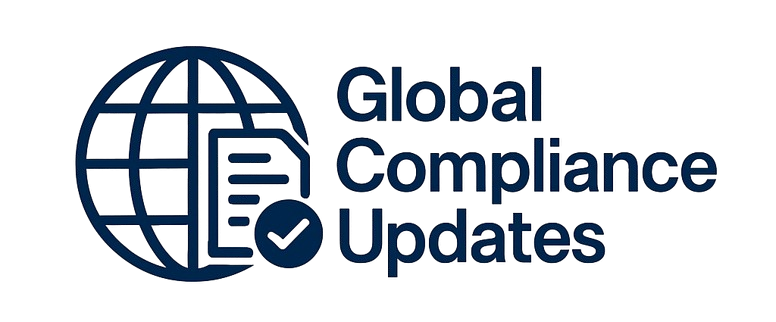This webinar will review the easy steps that you need to follow in order to create a Millennial-friendly work environment. Find out how to build an employment brand and recruiting process that will outsell your competition and boost the quality of Gen Y applicants you receive. Discover how to revamp your retention strategy to include development methods most valued by Gen Y talent. See examples of the latest trends in career development tools, ideas and technology that are working to keep this group of early career employees motivated and focused on contributing discretionary effort to your company’s bottom line.
WHY SHOULD YOU ATTEND?
Are you planning on Millennial Workers for your company’s growth? Millennials now represent over half of the available U.S. workforce. This webinar will outline a few easy steps for you to successfully attract and retain Millennial talent.
How do we know? We conducted a 14-month research study that told us how Millennials think about making job changes. In this webinar, we share those results with you. Some of our most closely held truths, such as “employees leave managers, not companies” are not necessarily holding water for Millennials.
LEARNING OBJECTIVES
- The most important job factors for attracting and retaining early career talent
- Employment branding strategy and messaging for Millennials
- Career support strategies that work for Gen Y employees
- Use of integrated talent management technology for Gen Y self-service career development
- Use of microlearning for career development
- Use of mobile apps for career and skill development
- How to teach Gen Ys to navigate their careers
- End-to-end career development ecosystems
- What to do about career development if there are no advancement opportunities
- The trendsetters - Case studies from tech companies in California; what they are doing to attract and retain early career employees
WHO WILL BENEFIT?
- HR Professionals
- Senior Managers
- Team Leaders
- Supervisors
Are you planning on Millennial Workers for your company’s growth? Millennials now represent over half of the available U.S. workforce. This webinar will outline a few easy steps for you to successfully attract and retain Millennial talent.
How do we know? We conducted a 14-month research study that told us how Millennials think about making job changes. In this webinar, we share those results with you. Some of our most closely held truths, such as “employees leave managers, not companies” are not necessarily holding water for Millennials.
- The most important job factors for attracting and retaining early career talent
- Employment branding strategy and messaging for Millennials
- Career support strategies that work for Gen Y employees
- Use of integrated talent management technology for Gen Y self-service career development
- Use of microlearning for career development
- Use of mobile apps for career and skill development
- How to teach Gen Ys to navigate their careers
- End-to-end career development ecosystems
- What to do about career development if there are no advancement opportunities
- The trendsetters - Case studies from tech companies in California; what they are doing to attract and retain early career employees
- HR Professionals
- Senior Managers
- Team Leaders
- Supervisors
Speaker Profile
 Dr. B. Lynn Ware
Dr. B. Lynn Ware
Dr. Ware is an Industrial/Organizational Psychologist and CEO of Integral Talent Systems, Inc. (ITS)ITS is a global technology enabled talent management consulting firm specializing in bringing the science of talent management to the bottom line.ITS is a pioneer in the field of attracting and retaining top talent, as the company was the first consulting firm dedicated to this workplace issue that began emerging in the U.S. during 1996 and has since become a global concern.Dr. Ware is frequently engaged with corporate clients to provide guidance on how to create “employer of choice” environments, so that they can attract and keep the best talent in their respective industries.ITS provides this guidance …
Upcoming Webinars


Effective Communication: Ensuring Clarity, Accountability a…

2-Hour Virtual Seminar on Workplace Investigations 101: How…

Employers Should Prepare for Immigration Raids in 2026! Thi…

AI for Excel Professionals: Enhancing Productivity with Cha…

The Importance of the first 5 seconds when presenting

Negotiating Skills For Professional Results - Winning Strat…

Workplace Behavior in 2026: Tackling Conflicts and Incivili…

FDA Recommendations for Artificial Intelligence/Machine Lea…

Validation Statistics for Non-Statisticians

Bootcamp for New Managers and Supervisors: Develop These Es…


Interactive dashboards & analytics in Excel


Enhancing Project Management with Storytelling Techniques

4-Hour Workshop on Data Simplified: Sorting and Filtering, …

Creating Your 2026 Marketing Strategy

The Language of Leadership: Is Your Communication Style As …

ChatGPT for Innovative Business Advisory Services for Accou…


Utilizing A Proven Process When Conducting Sensitive, Inter…

How to Write Procedures to Avoid Human Errors

Human Factors Usability Studies Following ISO 62366 and FDA…

Why EBITDA Doesn't Spell Cash Flow and What Does?

Mastering DAX Patterns in the Era of AI & Copilot

Establishing Appropriate Quality Metrics and Key Performanc…


IRS Form 1099 Reporting: Compliance Requirements

FDA QMSR Explained: How the QMSR Replaces the QSR

How to Manage the Legal Landmine of the FMLA, ADA and Worke…

Understanding EBITDA – Definition, Formula & Calculation

Tattoos, hijabs, piercings, and pink hair: The challenges …

FDA Compliance And Laboratory Computer System Validation

Medical Device Hazard analysis following ISO 14971




Excel Spreadsheets; Develop and Validate for 21 CFR Part 11…

Excel + AI: The Smart User's Guide to Faster, Easier Work w…
